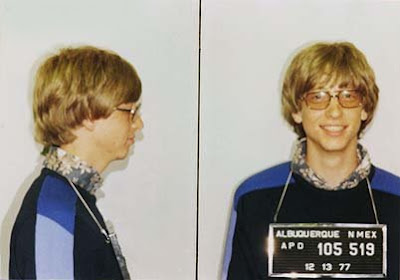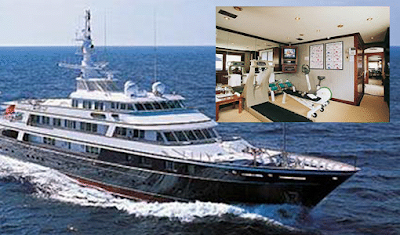Saturday, February 6, 2010
The Bank Of England
The Bank of England (BOE) was founded in 1694, and despite its name is the central bank of the entire United Kingdom. It is the second oldest central bank in the world, behind only Sweden's Riksbank, which was founded in 1654. Commonly referred to as "The Old Lady of Threadneedle Street," the bank's original functions were to act as the government's banker and its debt manager. The bank has evolved over its long and rich history and with it so have its responsibilities. At some point during its existence the BOE's duties have included being the government's bank and debt manager, serving as a commercial bank and other bank's bank, issuing currency, regulating banks, and storing the nation's gold and foreign exchange reserves. The bank had strong ties to the government even when it was privately owned and in the 1940's the BOE was nationalized and fell under the umbrella of the treasury department. However, in 1997 the newly elected Labour Party leaders, Tony Blair and Gordon Brown, granted the bank independence from the government and for the first time empowered it with control of the nation's interest rate.
In addition to controlling the interest rate, the bank currently controls the foreign exchange reserves, acts as the banker's bank and issues notes and coins. Concurrent with assuming control of the interest rate in 1997, the bank transferred the duty of managing the government's debt to the Treasury Department and its regulatory functions were assumed by the Financial Services Authority ("FSA"). Although the bank is essentially independent, Parliament reviews the bank's accounts and annual report because its policies affect the public. Additionally, it has a close relationship with the Treasury, whose Treasury Committee conducts regular hearings on inflation with members of the Bank's Monetary Policy Committee ("MPC"). Furthermore, the government sets the unemployment and growth objectives as well as an inflation target for the economy (currently 2%), which the bank attempts to meet. If the actual inflation rate is 1% (or more) off target, then the Governor of the bank must submit an explanation to the Chancellor of the Exchequer.
Meeting the government's inflation target is the final component of the bank's objective to achieve monetary stability. In order to keep prices stable and maintain non-inflationary growth, the bank controls the short term interest rate. Monetary policy decisions are all made by the MPC. The MPC has nine members and consists of the Governor, two Deputy Governors, two executive directors of the bank and four appointees by the Chancellor of the Exchequer. The Governor and the Deputy Governors are all appointed by the Crown to a term of five years, although the Chancellor wields a strong influence over the selections. MPC members often travel throughout the country in order to get a better feel for the country's overall economy. Additionally, the MPC is committed to transparent operations and, therefore, releases the voting results of their meetings after just two weeks, which is far quicker than the other central banks. Also, they frequently publish inflation predictions, which are available to the public.
The BOE's second objective is to maintain financial stability. This refers to the detection and elimination of threats to the overall financial system. The bank closely observes the markets and continuously strengthens the financial infrastructure. Until 1997, this included the supervision and the regulation of individual banks and exchanges, however these tasks are now the FSA's responsibility. Other activities used by the bank to maintain financial stability include acting as the banker's bank and issuing notes and coins.
Most of these operations are conducted by the executive team, which includes the executive directors of the bank and their subordinates. The governor and the deputy governors are also part of the executive team and supervise the executive directors. Only two executive directors serve on the MPC. Additionally, the bank has a Court of Directors consisting of the governor, two deputy governors, and 16 non-executive board directors. The non-executive directors are appointed by the crown to a term of three years. The Court's main function is to ensure that the bank runs smoothly and efficiently. The bank is reviewed and monitored by NedCo, a sub-committee consisting of all the non-executive directors.
Current Governor: Mervyn A. King
Mervyn Allister King succeeded Sir Eddie George as the Governor of the Bank of England on June 30, 2003. He grew up in the small city of Wolverhampton and is an avid fan of the nearby soccer (football) team Aston Villa. Considered by many to be an academic and a phenomenal economist, he studied at Kings College, Cambridge and Harvard University. He also taught at the London School of Economics, MIT, and Harvard among other universities.
Mr. King joined the BOE in 1991 and played a key role in transforming Britain's monetary policy after the 'Black Wednesday' of September 1992. This refers to the extreme devaluation of the pound caused by George Soros, and which earned Soros the moniker "the man who broke the Bank of England." The Bank of England had been artificially maintaining their exchange rate with the Deutschmark despite the fact that the pound was overvalued. They did this because they were members of Europe's exchange rate mechanism ("ERM"), whose goal was to maintain a tight trading band between the many European countries' exchange rates. However, as the U.K's economy worsened and Germany's improved, the Pound became overvalued and the BOE was forced to intercede in order to maintain the rate. Soros and many other investors took advantage of intervention and placed enormous selling pressure on the Pound and the Bank of England was forced to accept a devalued Pound, earning Soros billions. As a result of 'Black Wednesday', the United Kingdom was promptly kicked out of the ERM, ultimately leading to the current system of a floating currency and an inflation target set by the government for the bank to meet by influencing interest rates.
Around that time, the United Kingdom's inflation rate and unemployment level were the highest among the G-7 members. However, since then it has been an entirely different story. The economy that Mr. King inherited from Sir George (Mr. King was his deputy governor) in 2003 was healthy and flush from over 40 straight quarters of GDP growth. The U.K. had the lowest unemployment rate among the G-8 nations and was one of the only large economies to avoid a recession in the early 21st century. Unfortunately, the future of the economy was not as bright, as sluggish economic data began to emerge from nearly every sector. Eventually in August 2005, the MPC decided to cut the interest rate for the first time in six years to the current 4.50% in order to stimulate the economy.
One of the main concerns about the appointment of Mr. King as governor was his strong personality. During Sir George's administration he often disagreed with the other members of the MPC and was frequently on the losing side of votes. Many people felt that as governor this could potentially be disastrous and the bank would become ineffective. Since taking over as governor he has eased those fears and for the most part has managed the bank efficiently. Another concern about Mr. King becoming governor was that his stance on the U.K. adopting the Euro might create undue tension with the government. Prime Minister Tony Blair has indicated that he would eventually like to adopt the currency and Mr. King is generally perceived as opposing the move. As of today the U.K. has still not adopted the Euro and Mr. King's beliefs have not been an issue.
Recently, tension has sparked between the Bank and the government regarding the appointment of members to the MPC. While officially the Governor and the two deputy governors are appointed by the crown, in reality it is the Chancellor of the Exchequer who makes the decision. Therefore, the Chancellor essentially controls seven out of the nine appointments (the governors and the four outside members) and the Bank would prefer more input in the selection of its candidates. Overall, the bank's relationship with the government is strong and Mr. King has continued the legacy of excellence at the bank despite the slowing economy. Regardless of his many critics, he has gained world-wide respect by demonstrating a savvy understanding of the economy and as a result the Bank of England remains one of the most respected central banks in the world.
realated articles:
Tokyo Stock Exchange
Day Trading: Profitable But Risky
The Bank Of Japan
The European Central Bank
The Bank Of England
Gifts From England
Philippines Light Rail Transit Public Transportation
The Manila Light Rail Transit System (Filipino: Sistema ng Magaan na Riles Panlulan ng Maynila),[citation needed] popularly known as the LRT, is a metropolitan rail system serving the Metro Manila area in the Philippines. Its twenty-nine stations over 28.8 kilometers (17.9 mi) of mostly elevated track form two lines. LRT Line 1, also called the Yellow Line, opened in 1984 and travels a north–south route. LRT Line 2, the Purple Line, was completed in 2004 and runs east–west.
The LRT is operated by the Light Rail Transit Authority (LRTA), a government-owned and controlled corporation under the authority of the Department of Transportation and Communications (DOTC). Along with the Manila Metro Rail Transit System (MRT, also called the Blue Line), and the Philippine National Railways (PNR), the LRT is part of Metro Manila's rail transportation infrastructure known as the Strong Republic Transit System (SRTS)
Stations
 The People Power Revolution was a series of nonviolent and prayerful mass street demonstrations in the Philippines that occurred in 1986. It was the inspiration for subsequent non-violent demonstrations around the world including those that ended the communist dictatorships of Eastern Europe.
The People Power Revolution was a series of nonviolent and prayerful mass street demonstrations in the Philippines that occurred in 1986. It was the inspiration for subsequent non-violent demonstrations around the world including those that ended the communist dictatorships of Eastern Europe.

 In 1990, it was voted by the BMW Tropical Beach Handbook as one of the best beaches in the world
In 1990, it was voted by the BMW Tropical Beach Handbook as one of the best beaches in the world
 Barasoain Church (also known as Our Lady of Mt. Carmel Parish) is a Roman Catholic church built in 1630 in Malolos City, Bulacan.
Barasoain Church (also known as Our Lady of Mt. Carmel Parish) is a Roman Catholic church built in 1630 in Malolos City, Bulacan.
 Laguna de Bay (Filipino: Lawa ng Bay; English: Laguna de Bay is the largest lake in the Philippines and the third largest freshwater lake in Southeast Asia
Laguna de Bay (Filipino: Lawa ng Bay; English: Laguna de Bay is the largest lake in the Philippines and the third largest freshwater lake in Southeast Asia
 Malacañan Palace, is the official residence of the President of the Philippines.
Malacañan Palace, is the official residence of the President of the Philippines.






















 >
>




















































No comments:
Post a Comment